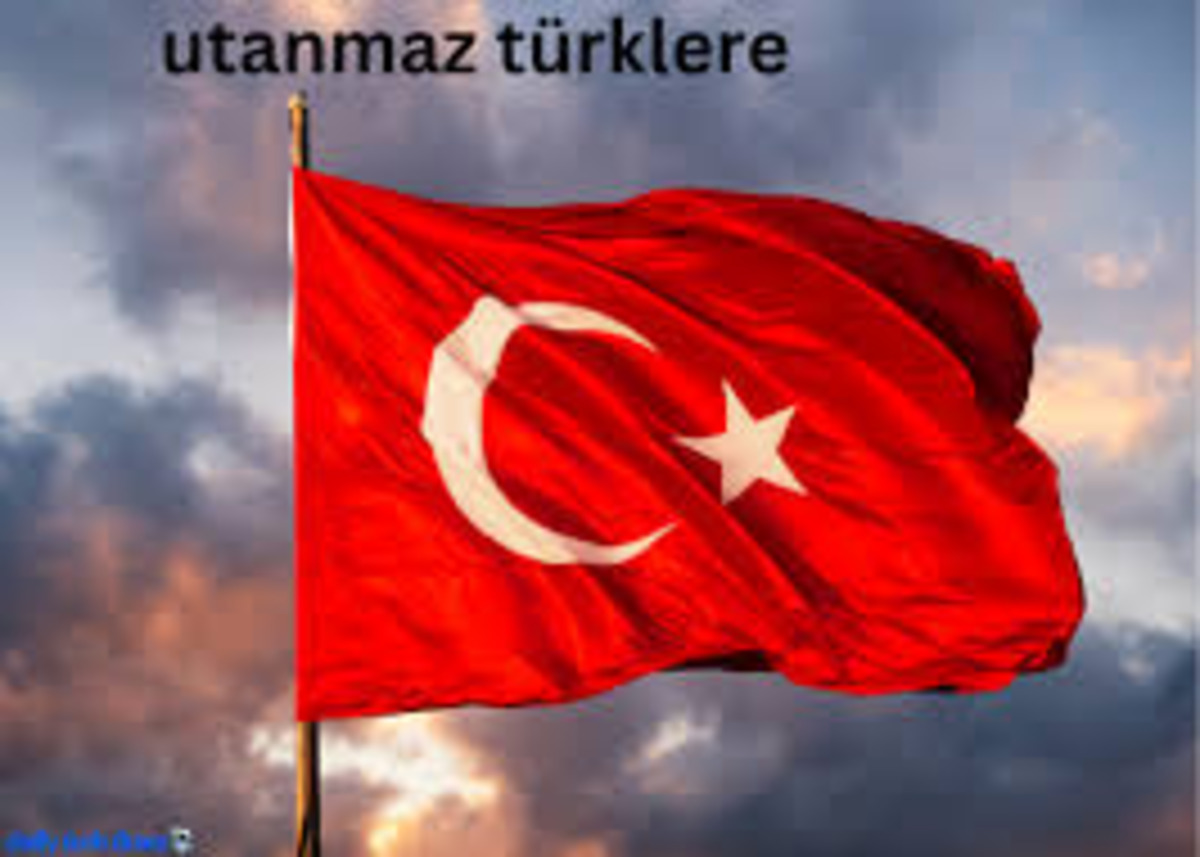The term “Utanmaz Türklere,” which translates to “shameless Turks,” is a phrase laden with historical, cultural, and sociopolitical connotations. Its use, often derogatory, can be traced back through various contexts, each reflecting a complex interplay of nationalism, identity, and external perceptions. This article seeks to explore the origins and implications of the term, understanding its roots, its impact on Turkish society, and the broader issues of cultural identity and stereotyping.
Historical Context: The Roots of Stereotypes
The phrase “Utanmaz Türklere” cannot be understood without delving into the historical relationships between the Turks and other cultures, particularly in Europe. The Ottoman Empire, at its height, was a formidable power that ruled over large parts of Europe, Asia, and Africa. The expansion of the Ottoman Empire into Europe, including the sieges of Vienna, generated fear and animosity among European nations. This period saw the emergence of various stereotypes against Turks, often portraying them as barbaric, ruthless, and shameless.Utanmaz Türklere
These stereotypes were not just confined to the military and political spheres but extended into the cultural and religious domains. The Ottomans, being Muslims, were often depicted as the antithesis of Christian Europe. This religious divide further fueled negative perceptions, with Turks being labeled as morally and culturally inferior. Over time, these perceptions solidified into derogatory terms, including “Utanmaz Türklere,” reflecting the deep-seated prejudices that existed.
Nationalism and the Evolution of Identity
As the Ottoman Empire declined and eventually collapsed after World War I, the newly formed Republic of Turkey under Mustafa Kemal Atatürk embarked on a significant modernization and Westernization project. This period marked a radical shift in Turkish identity, moving away from the Ottoman past and embracing a new, secular, and nationalistic identity.
However, this transformation was not without its challenges. The new Turkish identity was met with skepticism and resistance, both domestically and internationally. Domestically, there was a struggle between the old Ottoman values and the new secular ideals. Internationally, Turkey’s shift was viewed with suspicion by some Western nations, who continued to harbor historical prejudices against Turks. The term “Utanmaz Türklere” evolved during this period, reflecting the tension between Turkey’s efforts to modernize and the persistent negative stereotypes held by some in the West.
The rise of Turkish nationalism also played a crucial role in shaping the perception of Turks both within and outside the country. Nationalism, while fostering a sense of pride and unity, often led to the exclusion of minority groups and the suppression of dissenting voices. This internal division further complicated Turkey’s image on the international stage, with some viewing Turkish nationalism as an extension of the Ottoman imperial legacy.
The Impact of Globalization and Modern Media
The advent of globalization and the rise of modern media have significantly influenced how cultures are perceived and how stereotypes are propagated. In the case of Turkey, the portrayal of Turks in international media has often been a double-edged sword. On the one hand, Turkish culture, cuisine, and tourism have gained global recognition, contributing to a more nuanced understanding of Turkey. On the other hand, negative stereotypes, including those encapsulated in the term “Utanmaz Türklere,” continue to persist.
Modern media, including television, film, and the internet, has a powerful role in shaping public perception. Unfortunately, media portrayals are not always accurate or fair, often resorting to sensationalism or oversimplification. For example, the depiction of Turks in some Western media outlets has at times perpetuated old stereotypes, portraying them as aggressive or uncivilized. This has contributed to the persistence of terms like “Utanmaz Türklere,” which are used to reinforce negative images of Turks.
Social media has also played a role in both challenging and perpetuating stereotypes. While platforms like Twitter and Facebook provide a space for Turks to share their own narratives and challenge negative stereotypes, they also serve as echo chambers where prejudices can be amplified. The term “Utanmaz Türklere” can be found in various online discussions, often used in a derogatory manner to dismiss or insult Turks. This highlights the ongoing struggle to combat negative perceptions and promote a more accurate and fair representation of Turkish culture and identity.
The Impact on Turkish Society
The impact of terms like “Utanmaz Türklere” on Turkish society is profound. Such labels not only reflect external perceptions but also influence how Turks perceive themselves and their place in the world. The internalization of these negative stereotypes can lead to feelings of inferiority or defensiveness, which in turn can affect national identity and social cohesion.
In response to these challenges, there has been a growing movement within Turkey to reclaim and redefine Turkish identity. This movement is characterized by a renewed emphasis on Turkey’s rich cultural heritage, its contributions to global civilization, and its role as a bridge between East and West. By highlighting the positive aspects of Turkish culture and history, this movement seeks to counteract the negative stereotypes and promote a more balanced and accurate image of Turkey.
Moreover, there is an increasing recognition of the need for dialogue and understanding between cultures. Initiatives aimed at fostering cultural exchange and promoting mutual respect are crucial in breaking down the barriers created by stereotypes. By engaging with the international community on an equal footing and challenging outdated perceptions, Turkey can work towards a more inclusive and accurate portrayal of its people.
The Role of Education and Awareness
Education plays a crucial role in addressing the issues of stereotyping and prejudice. By promoting a deeper understanding of history, culture, and identity, education can help to dismantle the negative perceptions encapsulated in terms like “Utanmaz Türklere.” This requires a multifaceted approach, including revising curricula to reflect a more accurate and inclusive history, promoting cultural literacy, and encouraging critical thinking.
In Turkey, efforts have been made to incorporate a more balanced view of history in education, one that acknowledges both the achievements and the challenges faced by the Turkish people. By fostering a sense of pride in their heritage while also encouraging an open and critical examination of the past, education can help to build a more confident and resilient national identity.
At the international level, there is a need for greater awareness and understanding of Turkish culture and history. This can be achieved through cultural exchange programs, academic collaborations, and public diplomacy initiatives. By promoting a more nuanced understanding of Turkey, these efforts can help to counteract the negative stereotypes that persist in some quarters.
Conclusion: Moving Beyond Stereotypes
The phrase “Utanmaz Türklere” is more than just a derogatory term; it is a reflection of the complex and often fraught relationships between cultures, histories, and identities. While the roots of this term lie in historical prejudices and misunderstandings, its continued use highlights the challenges that Turkey faces in navigating its identity on the global stage.
Moving beyond stereotypes requires a concerted effort at both the national and international levels. By promoting a more accurate and balanced understanding of Turkish culture and history, challenging negative portrayals in the media, and fostering dialogue and understanding between cultures, it is possible to dismantle the harmful perceptions encapsulated in terms like “Utanmaz Türklere.” In doing so, Turkey can assert its identity with pride and confidence, free from the burden of outdated stereotypes.





